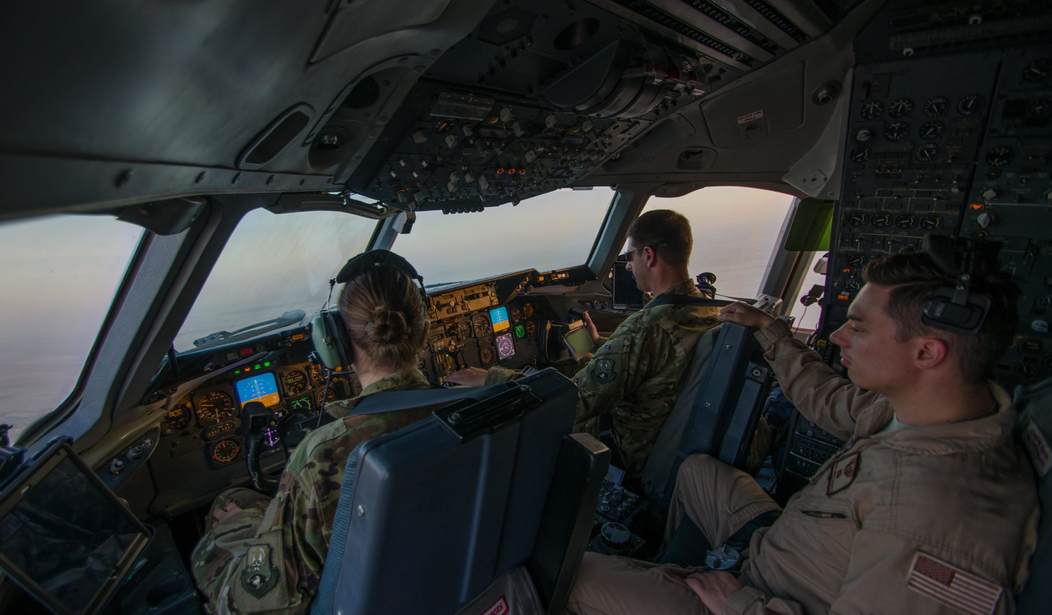ARLINGTON, Va. — The U.S. commander in Afghanistan said the Taliban decided to “take a knee and change their tactics,” prompting joint Afghan-U.S. attacks on drug labs used by the “narcoinsurgency” to raise cash for terror.
“Last night, Afghan and US forces launched operations in Helmand to abolish opium processing labs. 8 labs were destroyed on day one,” Afghan President Ashraf Ghani tweeted today. “We’re determined to tackle criminal economy and narcotics trafficking with full force. It’s the main source of financing violence and terror.”
In a briefing via teleconference from Kabul, Resolute Support and U.S. Forces Afghanistan Commander Gen. John Nicholson told Pentagon reporters that the Taliban failed this fighting season in their objective to take any cities and “suffered a significant amount of casualties from the Afghan-led offensive operations.”
“We are seeing signs of friction and disagreement within the Taliban leadership ranks. They know they cannot win — they can’t win in the face of this growing capability” of the Afghan security forces, he added. The Taliban control “roughly” the same amount of territory they did a year ago.
The Taliban have taken “a step back in terms of enemy tactics to a guerrilla warfare type of strategy, from one where they attempt to seize and hold terrain.”
“Now, the Taliban are interested, though, in making money, and to some extent it’s fair to say that this movement has evolved into a narcoinsurgency, so that the profits from narcotics now exceed their operating expenses, and we find that the leadership of the Taliban fight over the money, and it’s often divided along tribal lines,” Nicholson continued. “They make their money in a couple of ways. One is the narcotics trafficking; second, illegal mining; kidnapping for hire; murder; etc. So, largely, they’ve evolved into a criminal organization and truly fit the definition of a narcoinsurgency.”
The Taliban take on events was naturally different, with spokesman Qari Yousuf Ahmadi saying in an interview posted Sunday on the group’s website that the “enemy is badly defeated on all fronts and is deeply embarrassed and frustrated” as their recruitment of jihadists grows.
“Since Mr. Trump is an unacquainted person with state affairs and diplomacy, therefore he adopted an amateurish and wicked strategy which is harmful for their own forces besides undermining their long-term interests in the region… as for far our mujahidin are concerned, this nasty strategy has resulted positively for them,” Ahmadi said, claiming “volunteers are increasing day by day, which has rejuvenated the morale of our mujahidin.”
Nicholson said the Taliban rake in at least $200 million from their opium business, and at about 4 percent of heroin on American streets comes from Afghanistan.
“We are not going after the farmers who are growing the poppy. They are largely compelled to grow the poppy. And this is kind of a tragic part of the story. When the farmer can’t pay their debts, they end up — the Taliban end up taking their sons or daughters as collateral, or they simply live in debt, a form a slavery, to the Taliban. And when they live in a Taliban-controlled area, they essentially are required to grow opium as a price for being there,” the general explained.
“So these strikes are focused on the places where the poppy’s processed further, eventually, into heroin — into opium, morphine, and then heroin. So we attack the drug traffic organizations that operate in this area. There’s about 20 drug trafficking — major drug trafficking organizations in the region, the APAC region, 13 in Afghanistan, and 7 of these have operations in Helmand. And this is why the strikes started there.”
A U.S. B-52 dropped six 500-pound, low-collateral-damage, precision-guided munitions on a Taliban processing facility last night “in order to keep the collateral damage to an absolute minimum, and we did,” Nicholson said.
One of the drug labs hit last night had more 50 barrels of opium — with street value in the millions — cooking at the time of the strike; after “several 2,000-pound bombs,” the facility was “completely obliterated.”
“Two-thirds of the country, the population is under government control, and then about a third is either under Taliban control, or contested. So, of that one-third, maybe 20 percent to 25 percent is contested. This is where most of the poppy is being grown,” the general said. “Something like 80 percent to 85 percent of the poppy is being grown in these areas.”









Join the conversation as a VIP Member